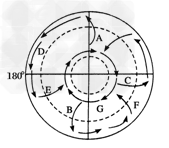阅读下面的短文,回答以下问题。
①细菌和病毒都是可以致病的微生物,但它们的特征区别很大。细菌虽然小,要在光学显微镜下才能看得见,但它除了拥有生命的基本单位核酸之外,还有一大套赖以生存的配套设施。包括作为居住“公馆”的细胞壁,储存营养物质的“仓库”,以及进行新陈代谢的“化工车间”。依靠这些,细菌能够摄取外界的物质并加工成需要的能量。
②而病毒就更小了,也可怜得多,且不奢谈“库房”和“车间”,就连作为保护外壳的“茅草房”也没有。实际上它只有一个分子大小,用电子显微镜才能看得见。整个家当也只是一条表示生命的核酸而已。如果拿人来做比喻,细菌最起码也有条裤子,有只讨饭碗,有根打狗棒。所以细菌虽然必须在人体内部的良好环境中才能繁殖,但处在恶劣环境中仍能生存较长的一段时间。而病毒则像个刚出生的婴儿,除了它的生命和一张吃奶的嘴外便一无所有,毫无独立生存的能力。因而病毒只能寄生在人或动物的细胞内部,靠“窃取”细胞里的现成营养才能生存。一旦被排出体外,病毒就活不了几小时。
③大部分抗生素对细菌起作用,是因为抗生素可以抑制细胞繁殖,干扰它们形成新的遗传结构或者细胞壁。而正因为病毒只能寄生在别人的细胞内,自己不能完成这些生化反应,所以抗生素对病毒全无作用。
④结构这样简陋的病毒算不算是生命这是个值得讨论的问题。生命必须具备的条件有两条:能进行新陈代谢和自我复制。从这点来说病毒具备了生命的重要特征。但它又不是完整的生命,因为所有生物体的生命特征都寓藏于DNA的双螺旋链中,唯独病毒没有双螺旋,而只有一条单链,有时还不是DNA而是RNA,所以病毒只具备了部分的生命特征。因而病毒不属于生物界共同的生命形式,或者说只是一种残缺不全的生命形式。
⑤病毒的生存能力既然这么弱,为什么还会那样猖獗呢例如埃博拉的感染力极强,病死率可达80%。实际上大多数病毒远没有那么可怕,有的也不会使人得病。冠状病毒本来致病的能力并不强,问题在于“变种”上。变异的病毒和原来的不同了,它可能是无害的,但也可能变成“杀伤力”更大的病毒。然而我们不必担心它会因反复变异而使杀伤力次第增大。因为就杀伤力而言,变异就像赌博,总是有输有赢,不断地赢下去的几率是微乎其微的。至少有史以来还没有过这样的记录。如果有过,可能现在就没有我们的存在了。
⑥必须指出的是杀伤力的大小不仅取决于病毒一方,更重要的是人群的免疫力。变种冠状病毒之所以为患甚大,很重要的一个因素是人类还没有接触过这样变种后的新病毒。当人群有足够多的人产生了抗体之后,这种病毒对人类的威胁也就小得多了。
下面对本文内容的分析和概括。正确的一项是()。
A.第①②和③段运用比较说明和举例说明的方法,将病毒和细菌作了相对全面的比较,意在提醒读者,由于病毒的寄生特性,抗生素对病毒不起作用
B.第④段集中介绍了病毒不属于生命形式的特性,进一步突出了病毒结构的“简陋”,使读者对病毒有了更全面的认识
C.第⑤和⑥两段着重介绍了病毒变异的情况,说明病毒的变异并非十分可怕的事情,人产生的抗体也会是病毒“变种”的克星
D.本文主要孤住病毒“毫无独立生存能力”的致命弱点进行说明,说明时运用了一系列比喻,不仅增强了语言的生动性,也表现出战胜病毒的信心和勇气
参考答案:C
解析:
A项没有“运用……举例说明的方法”,“意在提醒读者”的说法也不准确;B项“不属于生命形式”的说法不准确,应是“不属于生物界共同的生命形式”;D项“表现了战胜病毒的信心和勇气”的说法不准确,应该是“突出了病毒简陋和没有独立生存能力的特点”。

